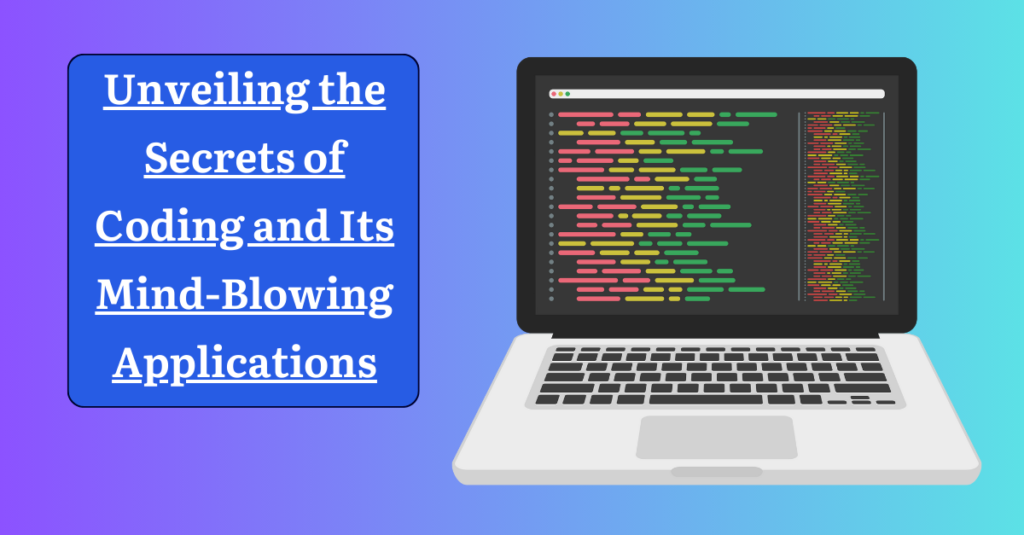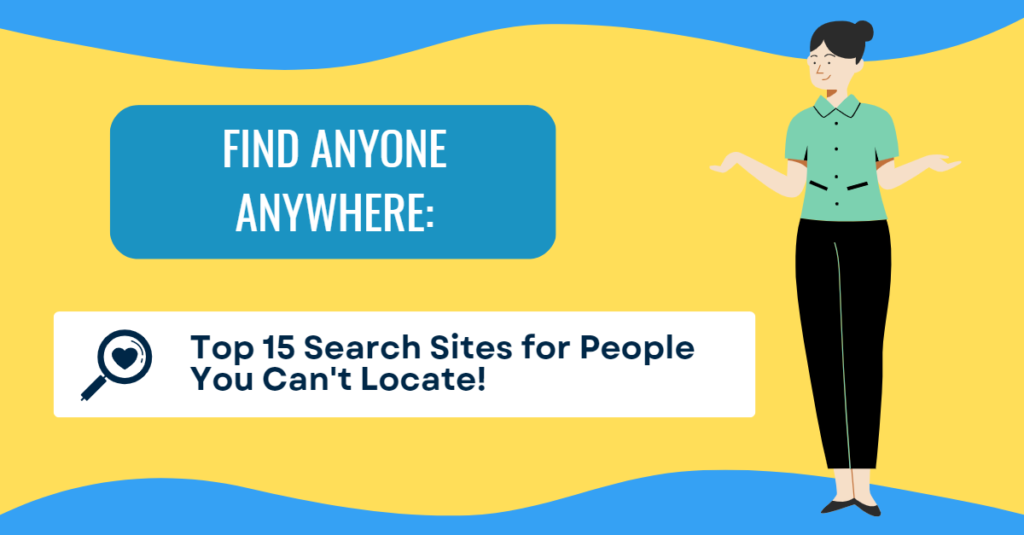Unveiling the Secrets of Coding and Its Mind-Blowing Applications
Introduction
I. The Essence of Coding:

At its core, coding is the art and science of instructing computers to perform specific tasks. It involves the use of programming languages, each with its syntax and semantics, to create software, applications, and solutions that drive the technological infrastructure we rely on daily. Understanding the basics of coding empowers individuals to communicate with machines, transforming ideas into tangible digital realities.
II. The Building Blocks: Programming Languages and Environments:
To unveil the secrets of coding, one must first grasp the building blocks—programming languages and environments. Programming languages serve as the medium through which humans communicate with computers. From widely-used languages like Python and Java to specialized languages like R for data science or Swift for iOS development, each has its strengths and applications. In parallel, coding environments, such as Integrated Development Environments (IDEs) and text editors, provide the tools necessary to write, test, and debug code efficiently.
III. Applications of Coding in Software Development:

A. Web Development:
The internet is the backbone of our interconnected world, and web development lies at the heart of it. Coding enables the creation of visually stunning and functional websites using languages like HTML, CSS, and JavaScript. From simple personal blogs to complex e-commerce platforms, web development showcases the diverse applications of coding in the digital realm.
B. Mobile App Development:
In the age of smartphones, mobile app development has become a powerhouse in the tech industry. Coding allows developers to craft applications for iOS and Android platforms, catering to the diverse needs of users. Whether it’s a social media app, a fitness tracker, or a productivity tool, coding is the driving force behind the mobile experiences we cherish.
C. Desktop Applications:
Beyond the web and mobile, coding is instrumental in crafting desktop applications that run on operating systems like Windows, macOS, and Linux. From office productivity suites to graphic design software, the versatility of coding extends to every software solution that enhances our digital lives.
IV. Coding in Data Science and Analysis:
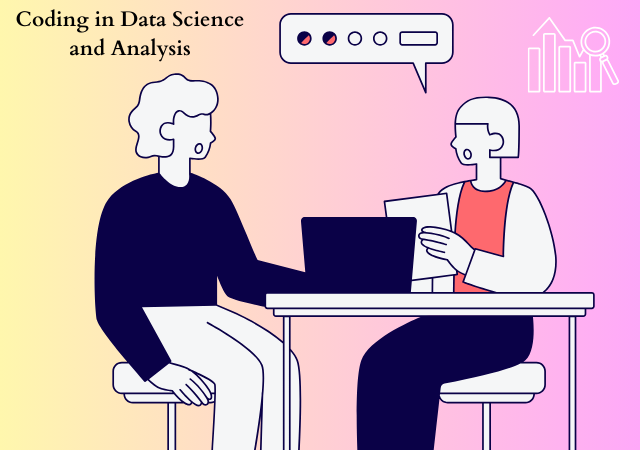
A. Data Manipulation:
The era of big data has ushered in a demand for professionals skilled in data manipulation. Coding languages like Python and R are extensively used for cleaning, analyzing, and visualizing vast datasets. Through coding, data scientists extract valuable insights, driving informed decision-making across industries.
B. Machine Learning:
At the forefront of technological innovation, machine learning harnesses the power of coding to enable computers to learn and make predictions without explicit programming. From recommendation algorithms to image recognition systems, machine learning applications are reshaping industries and revolutionizing the way we interact with technology.
V. Automation: The Power of Scripting and Task Automation:
Coding is not limited to creating visible applications; it also plays a pivotal role in automation. Scripting languages like Bash and Python allow users to automate repetitive tasks, saving time and minimizing errors. From simple script-based actions to orchestrating complex workflows, coding empowers individuals and organizations to operate more efficiently.
VI. Hardware Programming in the Digital Age:
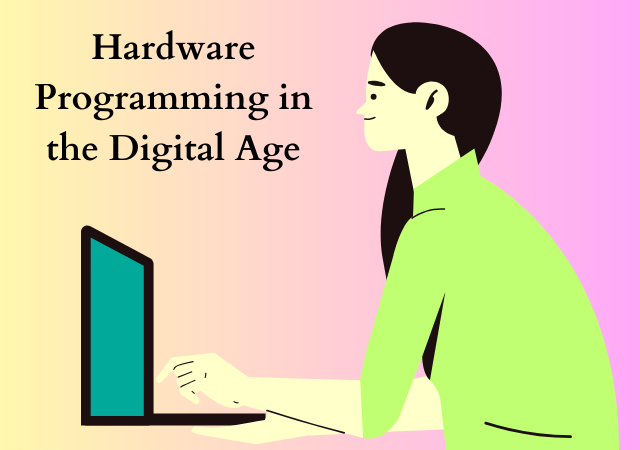
A. Embedded Systems:
Coding extends its reach beyond the digital realm into the physical world through embedded systems. These are specialized computing systems embedded in everyday devices, from smart refrigerators to medical devices. Coding for embedded systems ensures these devices operate seamlessly, enhancing our daily lives.
B. Internet of Things (IoT):
The Internet of Things (IoT) connects devices to the internet, enabling them to communicate and share data. Coding is the backbone of IoT, allowing devices to collect, process, and respond to information. From smart homes to industrial applications, IoT showcases the transformative power of coding in the realm of interconnected devices.
VII. The Importance of Learning Coding:

A. Enhancing Problem-Solving Skills:
Learning to code develops a logical and systematic approach to problem-solving. Coders break down complex issues into manageable parts, devising solutions through step-by-step processes—an invaluable skill applicable across various disciplines.
B. Fostering Creativity:
Coding is a form of creative expression. Whether designing a user interface, optimizing an algorithm, or creating a new software solution, coding encourages individuals to think creatively and innovate. It provides a canvas for turning imaginative ideas into functional realities.
C. Increasing Career Opportunities:
In a job market increasingly shaped by technology, coding skills open doors to a myriad of career opportunities. From software development to data analysis and artificial intelligence, coding proficiency is a valuable asset in the professional landscape.
D. Contributing to Technological Advancements:
Those well-versed in coding have the power to contribute to technological advancements that shape the future. Whether developing cutting-edge applications or contributing to open-source projects, coders play a vital role in pushing the boundaries of what technology can achieve.
VIII. Popular Programming Languages: A Landscape Overview
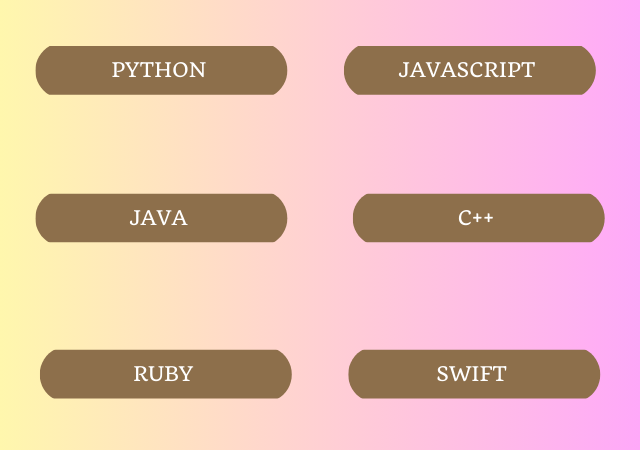
A. Python:
Known for its simplicity and readability, Python has become one of the most popular programming languages. It is versatile, used in web development, data science, machine learning, and more.
B. JavaScript:
As the language of the web, JavaScript is essential for front-end web development, enabling interactive and dynamic user interfaces.
C. Java:
Renowned for its platform independence, Java is widely used in enterprise applications, mobile app development (Android), and large-scale systems.
D. C++:
With a focus on performance, C++ is favored in systems programming, game development, and resource-intensive applications.
E. Ruby:
Loved for its elegant syntax, Ruby is often used in web development, particularly with the Ruby on Rails framework.
F. Swift:
Developed by Apple, Swift is the go-to language for iOS app development, known for its speed and safety features.
IX. Challenges and Future Trends in Coding:

A. Common Challenges Faced by Coders:
While coding opens doors to innovation, it comes with its set of challenges. Debugging, managing complex codebases, and staying updated with evolving technologies are common hurdles coders face.
B. Emerging Technologies in Coding:
The future of coding is intertwined with emerging technologies that push the boundaries of what is possible.
- Artificial Intelligence: AI is revolutionizing coding itself with automated code generation and optimization. Machine learning algorithms are increasingly used for code analysis and improvement.
- Blockchain: Coding is at the core of blockchain technology, enabling the creation of decentralized and secure systems for transactions, contracts, and data storage.
- Quantum Computing: Quantum computing, still in its infancy, holds the promise of solving complex problems at speeds unimaginable with classical computers. Coding for quantum computers presents new challenges and opportunities.
X. Learning Resources for Coding:

A. Online Coding Platforms:
Platforms like Codecademy, Coursera, and Udacity offer interactive courses for beginners and advanced learners alike. These platforms provide hands-on experience, allowing individuals to practice coding in real-world scenarios.
B. Coding Bootcamps:
Coding bootcamps provide intensive, immersive learning experiences, often leading to quick entry into the tech industry. They are particularly popular for those seeking career transitions.
C. Traditional Education Options:
Universities and colleges offer computer science and software engineering programs for those seeking a comprehensive and in-depth understanding of coding. These programs often cover theoretical foundations alongside practical application.
Conclusion (Unveiling the Secrets of Coding and Its Mind-Blowing Applications)
In conclusion, “Unveiling the Secrets of Coding and Its Mind-Blowing Applications” has taken us on a journey through the fundamental aspects of coding and its transformative applications. From the creation of websites and mobile apps to the intricate world of data science and the automation of tasks, coding is the engine driving our tech-centric world.
As we navigate the challenges and opportunities in the coding landscape, it’s evident that learning to code is not merely about acquiring a skill—it’s about embracing a mindset of innovation, problem-solving, and continuous learning. As emerging technologies reshape the coding landscape, staying curious and adaptable will be key to unlocking the full potential of this dynamic field.
Whether you’re a seasoned coder or someone just starting on this exciting journey, remember that coding is not just a language—it’s a gateway to shaping the future. As we unveil the secrets of coding, let’s embrace the endless possibilities it offers, contributing to a world where innovation knows no bounds.

My name is Rohit Vagh and I’m a content writer specializing in fashion and lifestyle. I have three years of experience in this field and have written various articles. My writing style is creative and engaging, and I strive to create content that resonates with my readers. I have a deep passion for fashion and am constantly researching the latest trends and styles to make sure my readers are up to date. I’m excited to continue my career in blogging, and I’m always looking for new opportunities in the fashion and lifestyle space.

